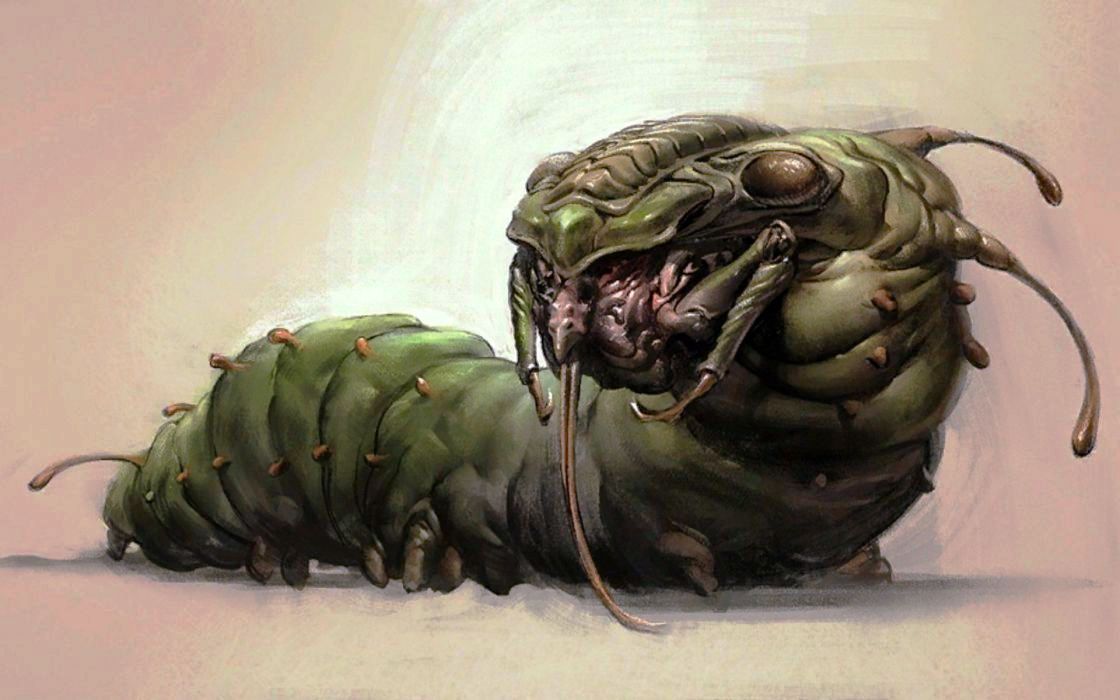Larva
| Species | chthonic |
| No. Appearing | 5–40 |
| Behaviour | mind slaves |
| Range | Abyss, Hell, subterranean, Tartarus |
| Size | 5–6 ft. long |
| Weight | 120–140 lbs. |
| Intelligence | 2 |
| Armour Class | 7 |
| Hit Dice | 1 |
| Action Points | 3 |
| Max. Stride | 3 |
| THAC0 | 20 |
| Hp/Die | d6 |
| Attack Forms | 1: fangs |
| Damage | 2–5 |
| Special Attacks | none |
Larvae are creatures that represent once-living souls transformed by the agonies of the Abyss for a sufficient period, so that now they've become oblivious to their own suffering. Consequently, they serve as commodities for demons and like creatures who regard larvae as expendable material to be utilized for various purposes. The Abyss houses countless such beings, some of whom might have been among the most wicked individuals in their previous lives — but which have dwindled into a state of utter wretchedness.
Contents
Certain demons and other malevolent creatures derive sadistic pleasure from retaining some larvae for the gruesome act of consuming them, subjecting these pitiable souls to an existence within the tormentor's belly until they are regurgitated or expelled, akin to waste. Consequently, heaps of these forsaken souls litter the depths of the lower planes, where they pose a dire nuisance to recently arrived souls. It's a common sight to stumble upon them within the chambers of powerful demons and devils.
Earthly Existence
Larvae infest subterranean realms, gaining entry through various gates from the netherworld, only to wander aimlessly without any semblance of hunger or purpose. Devoid of consciousness and direction, they aggressively attack any unfortunate soul they encounter.
From caves and pits, others such as night hags, lichs, mind flayers and kindred monstrous beings gather these larvae, imprisoning them to serve as obstacles and diversions, so they might alert their sinister leash-holders to encroaching outsiders. Larvae can be relied upon to attack to the death, weakening invaders ... while the smell of dead larvae acts as an alarm.
See Bestiary
